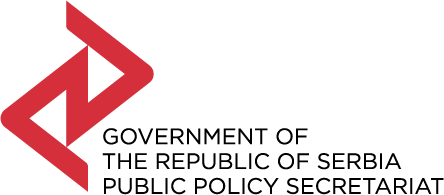Working together, the representatives of the academia and civil servants presented their knowledge and experience in the process of policy-making.
The participants of the Regional Academy were representatives from Albania, Bosnia and Herzegovina, North Macedonia, Serbia and Montenegro.
At the opening of the Regional Academy in Novi Sad, ReSPA Director Maja Handjiska-Trendafilova emphasised that “leveraging the rich regional knowledge and practice, but also getting the EU and global insights in policy-making, as well as further strengthening of teams and institutions dealing with policy-making inspired ReSPA team in establishing this Academy”.
During the first module, the participants had the opportunity to hear about the experiences of the Republic of Serbia on the following topics:
- Sanja Mešanović, Deputy Director of the Public Policy Secretariat presented the Action Plan for the Implementation of the Government Programme, as a mechanism that represents an efficient way for the Government and state administration for evidence-based governance.
- Jelena Todorović, Head of the APIGP Coordination Group and Ognjen Bogdanović, Head of the Department for Regulatory Quality and Impact Assessment of the Public Policy Secretariat presented the impact assessment of public policies in the Republic of Serbia using examples from their practice.
- Svetlana Aksentijević, Head of the Department for Economic Analysis of the Public Policy Secretariat presented the public policies performance indicators and their usage in reporting on the monitoring of the effects of public policies implementation.
- Marijana Batak, Senior Adviser of the department for planning support of the Public Policy Secretariat presented the Law on the Planning System of the Republic of Serbia, the reasons and results of establishing the new planning system, as well as the challenges in implementing the Law.
Lectures were held by:
- Jasna Atanasijević, professor of the Faculty of Sciences, University of Novi Sad, presented an academic perspective on the public policy making, as well as the elements and segments of the main stages of the public policy making process, namely: (1) defining the problem and setting the agenda; (2) formulation and adoption, (3) implementation and (4) evaluation of public policies.
- Zorana Lužanin and Dr. Andreja Tepavčević, professors of the Faculty of Sciences, University of Novi Sad presented how data is used and which data collection methodology is used in the public policy making and measuring the implementation of public policies.
The next module is planned to be held in Montenegro.
During the Academy, President of the Government of the Autonomous Province of Vojvodina, Igor Mirović, met with the participants and explained the main principles of planning and implementation of public policies in Vojvodina and the novelties in the decision-making process that have been introduced in the last six years.

